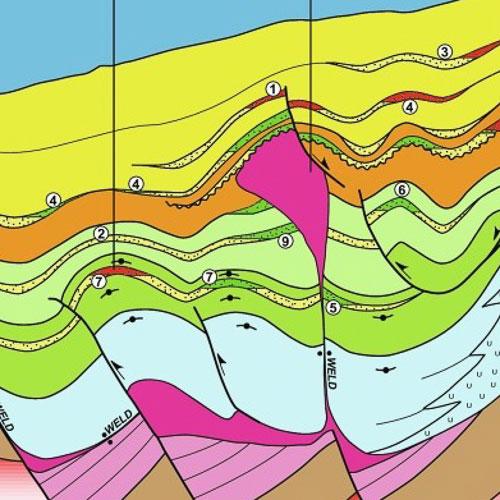
Assessment of plays and prospects is an important tool in managing financial and human resources. This fully revised and updated course is a fully modern approach to defining prospect and play volumetrics, uncertainties in defining these volumes and the risk that the accumulation exists. This practical course is adaptable to any workplace. The course evaluates other published approaches and contrasts them with the recommended procedures allowing the participants to choose the very best approach to resource evaluation. This course offers the industry quantitative, probabilistic play and prospect assessment procedures that are consistent and repeatable allowing for direct comparisons play to play or prospect to prospect. In addition, the methods offer measures of the play prospectiveness based on the number and resource size distribution of potential future fields.
The course is designed for:
All exploration team members and leaders including geologists, geophysicists, geochemists, analysts, reservoir engineers, economists, planners and managers who make business decisions based upon exploration data.
To provide knowledge and unique tools for practical, systematic, predrill assessment of potentially recoverable oil and gas;
to use the best available methods – trap volumetrics and hydrocarbon charge for prospects, and potential numbers and sizes of prospects for plays;
to quantify all geologic risks and uncertainties; and,
to provide insights for managers and reviewers in evaluating assessments, avoiding pitfalls, high-grading exploration opportunities, and planning selectively for the future.
The course focuses on the exploration concepts and models that are essential to effective assessments. The concepts and techniques learned in the course are applied to real industry examples in exercises and workshops. Tools include comprehensive assessment forms for prospects and plays, and graphs, data tables, and guidelines for making all assessment decisions. These tools help participants estimate risks and success ratios, field-size distributions, field and prospect densities, trap geometry corrections, multiple reservoir factors, porosities, permeabilities, saturations, formation volume factors, gas/oil ratios, formation temperatures, oil and gas recovery efficiencies, API gravities, gas gravities, NGL ratios, and oil and gas yields from source rocks. The forms and procedures are easily adaptable for internal usage in any oil and gas organization. All factors can be handled in either metric or English units.
In summary, you will learn:
Day 1
DAY 2
DAY 3
DAY 4
DAY 5
GeoModes 2021 | All Rights reserved | Powered by MENA
If you would like to request the course outline, find out the next available time slot or you have any other inquiry, please tell us more by filling up the form below.
Will be in touch with you as soon as we can.